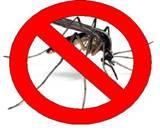Plaistow Mosquito Control Information

The Town of Plaistow has a plan in place to address this public health threat, which includes disease surveillance (mosquito testing) and public education on personal protection and property maintenance.
The Town of Plaistow Arboviral Illness Surveillance, Prevention and Response Plan can be viewed at the link below.
Please see the documents below on how to protect yourself and your family from mosquito bites.
Preventing Mosquito Breeding Opportunities
By reducing exposure to mosquitoes around the home, and by eliminating mosquito breeding grounds, residents can greatly reduce the risk of West Nile Virus exposure. Mosquitoes lay their eggs in standing water, and weeds, overgrown grass and bushes provide an outdoor home for mosquitoes that are associated with West Nile Virus.
The following steps should be taken to reduce opportunities for mosquito breeding:
- Drain, cover or fill areas that can potentially accumulate water. Puddles or ditches that collect standing water for several days are areas where mosquitoes can develop.
- Remove any old tires from the property.
- Check roof gutters to be sure they drain properly. Remove any debris and clean clogged gutters as needed to eliminate standing water.
- Drill holes in the bottom of recycling containers, ceramic pots, metal cans, plastic containers, or similar water-holding containers that are left outside.
- Clean and chlorinate swimming pools and hot tubs. If they are not used for the season, then keep covered or empty. If covered, be sure the cover does not collect standing water. If vacationing, contact your pool supply company for tips on maintaining the quality of your pool water.
- Aerate ornamental pools or stock them with fish. Water gardens can become major mosquito producers if allowed to stagnate.
- Keep wheelbarrows and wagons turned upside-down.
- Change water in birdbaths at least twice a week.
- Empty kiddie pools and wading pools and keep turned over when not in use.
Personal Protective Measures:
The following personal protective measures should be used from June to October, when mosquitoes are most active:
- If outside during the evening, nighttime and dawn hours, or at any time mosquitoes are actively biting, children and adults should wear protective clothing such as long pants, long-sleeved shirts, and socks.
- Consider the use of an effective insect repellant. Repellants containing DEET (N, N-diethyl-methyl-meta-toluamide) have been proven effective. For children and adults use 30% or less DEET.
- Do not use DEET on infants less than 2 months old.
- Always use DEET according to manufacturer's directions.
- Do not allow young children to apply DEET themselves.
- Do not apply DEET directly to children. Apply to your own hands and then put it on the child.
- Avoid prolonged or excessive use of DEET. Use sparingly to cover exposed skin and clothing.
- Wash all treated skin and clothing after returning indoors.
- Store DEET out of reach of children.
- Make sure that doors and windows have tight-fitting screens. Repair or replace all screens that have tears or holes.
- Cover baby strollers and playpens with mosquito netting for added protection.
Click on the links or documents below for updated information on Eastern Equine Encephalitis (EEE) and West Nile Virus (WNV)! Questions for dog, cat and horse owners regarding EEE can also be found in the documents below.
Additonal Links / Information:
- 2022 Mosquito Control Public Notice
- Mosquito Control Plan for Plaistow
- Dragon Mosquito Control
- Town of Plaistow - Mosquito Control Ordinance - Regulations to Control & Reduce the West Nile Virus Carrying Mosquito Population of the Town of Plaistow
- State of NH EEEV/ WNV Testing Results - Testing results from the State of NH DHHS Division of Public Health Services
- NH DHHS EEEV and WNV - NH DHHS webpage on EEEV and WNV
- EEEV Fact Sheet from NH DHHS
- West Nile Virus Fact Sheet from NH DHHS
- Jamestown Canyon Virus Fact Sheet from NH DHHS
- FAQ on Insect Repellants
- Presentation on How to Protect Yourself From EEEV and WNV
- EEEV and WNV (Arboviruses) and Mosquitoes in New Hampshire
- Reducing Mosquitoes Around Your Home and Community
- Symptoms and Care of West Nile Virus Infection
- Outdoor Activities During Mosquito Season
- EEEV and WNV in Dogs and Cats
- EEEV and WNV in Horses
- Before the swarm
- Bug News for Kids and Grown-Ups Too
- Pesticide Bulletin - Mosquito Control Products
- EEEV - Center for Disease Control - CDC Fact sheet on EEEV
- WNV - Center for Disease Control - West Nile Information and Case Counts From The CDC
- How to Dispose of Dead Birds- Dead Bird Handling Instructions
